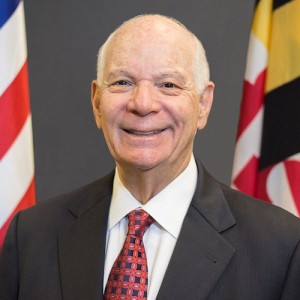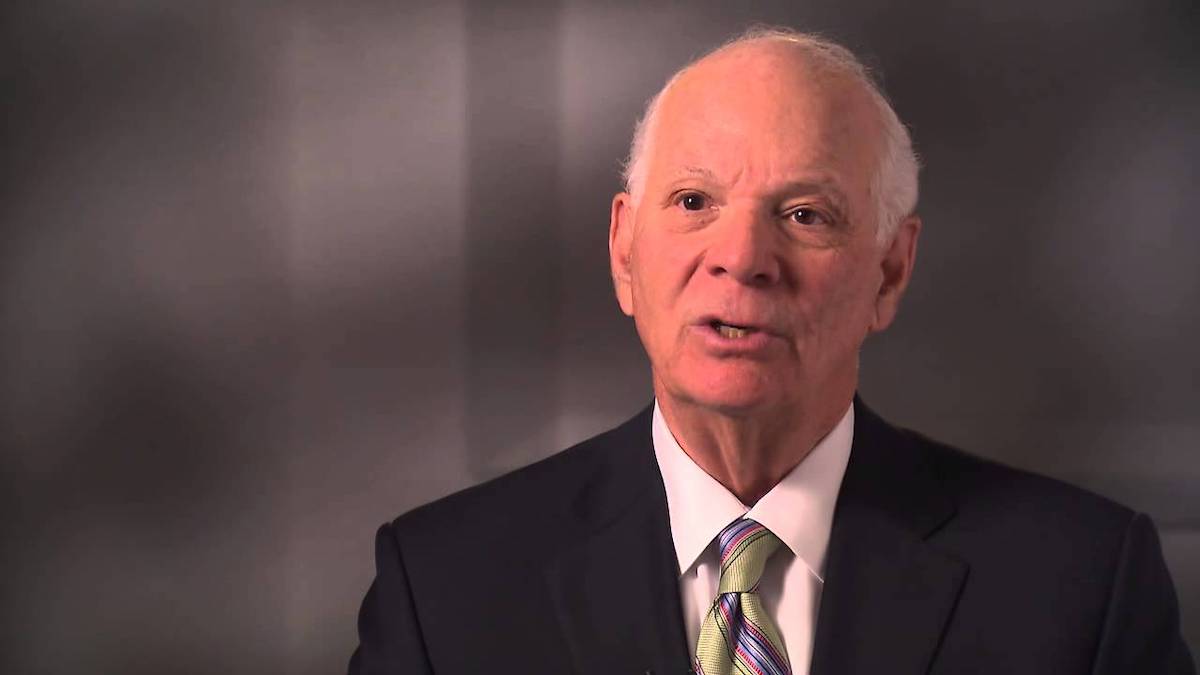Rockville, Maryland, Oct. 17 – Responding today to a questionnaire by the disability advocacy group RespectAbility, Maryland Democratic Sen. Ben Cardin outlined his views on training and hiring the 321,00 working-age people with disabilities in Maryland, who have an unemployment rate of 57.8 percent.
According to a recent survey, 74 percent of likely voters have a disability themselves or have a family member or a close friend with disabilities. The upcoming elections and their results will have an impact on people with disabilities, so it is important to become familiar with the candidates’ thoughts on certain issues.
“Candidates for office ignore the disability community at their peril,” said former U.S. Representative and Dallas Mayor Steve Bartlett. Bartlett, who was a primary author of the Americans With Disabilities Act of 1990, is the chairman of RespectAbility.
RespectAbility reached out to Cardin’s opponent, Republican challenger Tony Campbell, as well, but received no response, according to the organization’s Executive Director, Jennifer Laszlo Mizrahi.
RespectAbility is nonpartisan and does not endorse candidates. The questionnaire is purely for educational purposes.
The full text of RespectAbility’s questions and Cardin’s replies follows:
 Question 1: What policies and actions do you support to reduce the stigmas of people with disabilities that are barriers to employment, independence and equality?
Question 1: What policies and actions do you support to reduce the stigmas of people with disabilities that are barriers to employment, independence and equality?
Answer: Senator Cardin has championed the cause of inclusion and full political and economic equality for individuals with disabilities in the United States and abroad in his work as the Special Representative on Anti-Semitism, Racism, and Intolerance with the OSCE. He has introduced the National Security Diversity and Inclusion Workforce Act and supports legislation such as the Disability Integration Act, the Voter Empowerment Act, and the NO HATE Act, which all address this issue from a variety of different angles.
Question 2: What is your record on improving the lives of people with disabilities, specifically in enabling people with disabilities to have jobs, careers or start their own businesses?
Answer: Senator Cardin voted for the landmark Americans with Disabilities Act in 1990 and advocated for ratification of the Convention on the Rights of Persons with Disabilities. He has stayed active in disability issues by leading and supporting legislation and letters that promote the rights of individuals with disabilities. He maintains multiple staff who advise him on this issue from the perspectives of civil rights, labor, and health. He and his office are in regular contact with disability interest groups, whether by speaking at events or meeting with Hill advocates.
Question 3: Do you have specific strategies for youth employment for people with disabilities? For example, what are your thoughts on apprenticeships for youth with disabilities?
Answer: Senator Cardin knows that people with disabilities make vital contributions to our community and economy, and to that end supports the community development and employment programs that provide opportunities to people with disabilities, as well as broader inclusion in the national workforce.
Question 4: The jobs of the future will largely require post-secondary education. However, on average only 65 percent of students with disabilities complete high school and only seven percent complete college. What policies do you support to enable students with disabilities, including those from historically marginalized communities and backgrounds, to receive the diagnosis, Individualized Education Plan (IEP) or 504 plan and accommodation/services they need to succeed in school and be prepared for competitive employment?
Answer: Senator Cardin has prioritized inclusion of people with disabilities and believes in the need to ensure that students of special needs and other vulnerable groups receive the learning and social support they need for their personal and professional development.
Question 5: Today there are more than 750,000 people with disabilities behind bars in our nation. More than 60 percent of them are functionally illiterate and 95 percent of them will eventually be released. What are your views to ensure that individuals with disabilities who are incarcerated gain the skills and mental health supports that will enable them to be successful when they leave incarceration?
Answer: Senator Cardin believes that returning individuals should be re-integrated into their communities and receive the support, during and after incarceration, to fully achieve that end.
Question 6: People with disabilities are twice as likely to be victims of crime as those without disabilities. This includes the fact that both children and adults with disabilities are more likely to be victims of rape or sexual assault. They are also far more likely to suffer from police violence, partially because manifestations of disability can be misunderstood. How would you address these issues?
Answer: Senator Cardin believes it is critical to condemn the acts of rape or sexual assault and is a firm supporter of the rights of victims to receive care and justice. Discrimination has long been one of his chief concerns, and as it relates to instances of police violence, Senator Cardin has introduced legislation such as the Law Enforcement Trust and Integrity Act, which aims to set national standards for police accountability.
Question 7: How would you ensure that people with disabilities have access to healthcare and the benefits they need while enabling them with opportunities to work to the best of their capacities without losing the supports they need to live?
Answer: For several years, Senator Cardin has introduced the Medicare Access to Rehabilitation Services Act, which ends the arbitrary cap on outpatient therapy services and speech-language pathology services. This legislation was finally passed in 2018.
Question 8: What are your thoughts on ensuring that people with disabilities have the option to live in their homes instead of institutions and still have the community attendant supports they need to live?
Answer: Senator Cardin recognizes the importance of direct support professionals in caring for individuals with disabilities and supports their right to have access to affordable and safe housing free from discrimination.
Question 9: How would you advance innovations (i.e., assistive technologies, devices) that can help people with disabilities become more successfully employed, productive, and independent?
Answer: Senator Cardin supports funding for the important research done by the National Institutes of Health. As Ranking Member of the Senate Committee on Small Business, he also understands the value added to individual lives by the many biomedical and health businesses in Maryland.
Question 10: Are your office, website and events accessible to people with disabilities? If yes, please describe.
Answer: Senator Cardin’s office, as part of the Capitol complex in Washington D.C., is accessible to individuals with disabilities thanks to the presence of accessible entrances, elevators, and abundant space and conference rooms that allow for movement. The Cardin website was designed to make the structure as accessible as possible, although some modern apps are more difficult to scale than others. It does use semantic markup so it is easier for a screen reader to read aloud.
RespectAbility has asked all the candidates for senate on both sides of the aisle to complete the same questionnaire. We will share responses from additional campaigns as we receive them.
The RespectAbility Report is a nonpartisan political commentary on U.S. elections with a focus on disability issues. The RespectAbility Report first posed this down ballot questionnaire to candidates in 2016 while covering all of the 2016 Democratic and Republican candidates for president. Coverage of this and related issues can be found at http://therespectabilityreport.org.
The RespectAbility Report is nonpartisan and does not endorse candidates.

Be First to Comment